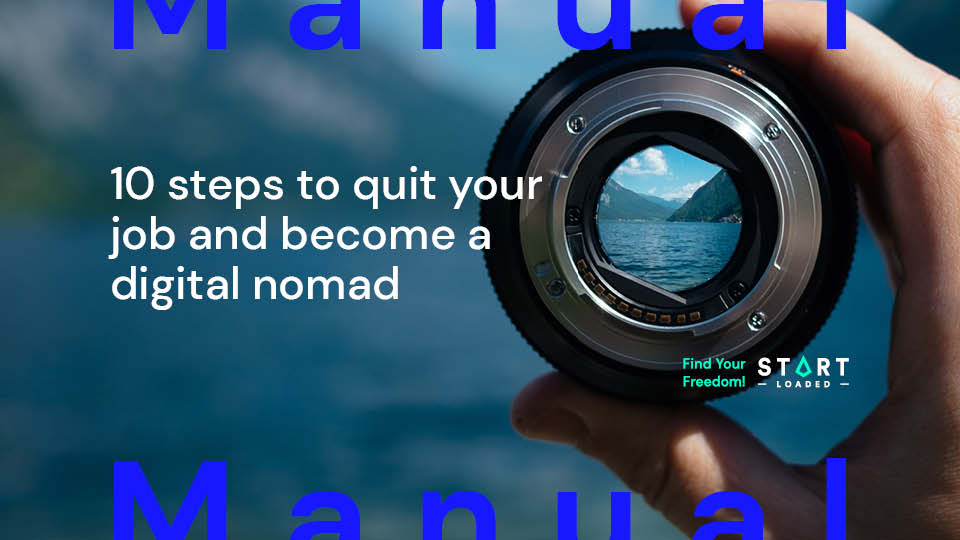One of my all-time dreams was to learn to surf. Since becoming a digital nomad I’ve been able to focus more time on myself and get better at some of the hobbies and passions that make me happy. I’ve now been stationed in Lombok, Indonesia for a few months surfing. The bottom line is that this amazing sport has taught me a lot about life and has become an ever-growing addiction that will probably never leave me.
Here are a few life lessons I can take from surfing:
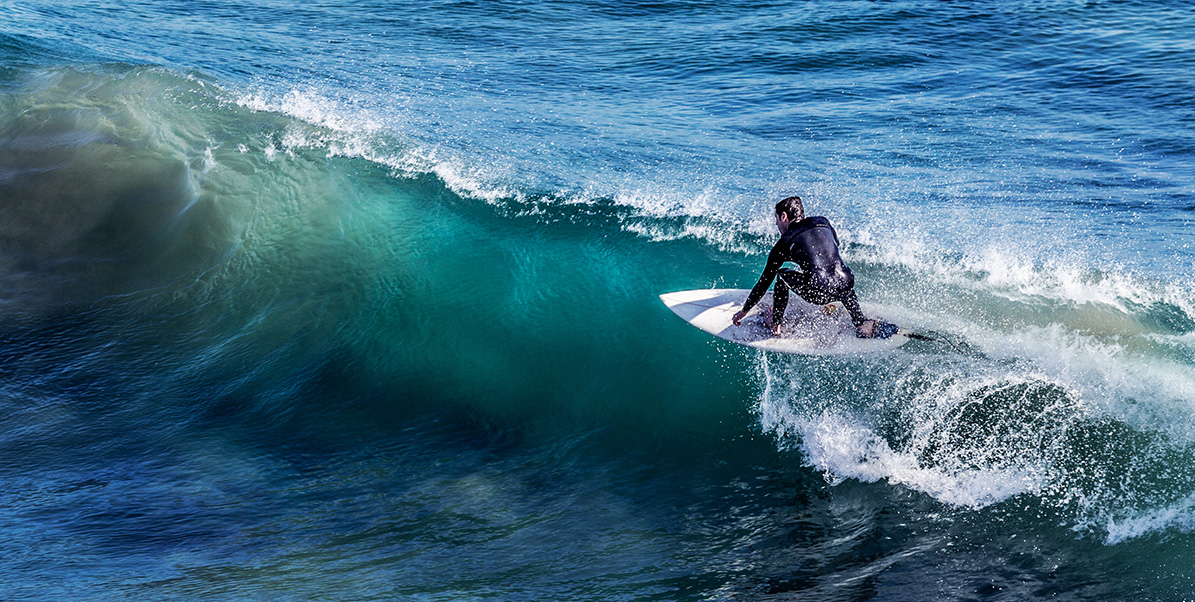
1. It pays off to be patient
It’s tempting to pedal all over the place, to try and force yourself on a wave and to go for whatever comes your way. The problem with doing this is that when a good opportunity comes you are often too tired and overworked to take it. If you wait long enough you’ll get the perfect waves you’ve been waiting for and enjoy the ride of your life.
2. Don’t steal
If you try and get in the way of others and steal waves, karma will come back and get you. You’ll piss other people off and create a negative atmosphere in the water. Stealing a wave could potentially be worse than stealing someone’s wife, if you hear someone screaming at you it might be worth riding as fast as you can and then pedalling down to the Bahamas.
3. Pick your battles
There’s no chance you’ll be able to get every single wave out there and if you try and do it you’ll be going home with nothing but sore arms and frustration. Surfing makes you think about where your energies should be spent. If something seems to be completely out of reach there’s no need to panic and pedal like a maniac, there will always be another set.
4. Respect what’s bigger and stronger than you
If you try to fight against the sea, you’ll lose, if you don’t respect your limitations, you’ll lose. Surfing humbles you in front of the insane power of nature, if there’s something stronger than you it doesn’t mean you cannot win, you only need to know how to fight it.
5. Don’t compare yourself to others
It’s very easy to go in the water and start comparing yourself to all the pros out there. But all that this will do is make you feel frustrated, angry, depressed and exasperated. It’s one thing to learn from others and a very different one to constantly compare yourself to others. You don’t know what the other person has been through to get to that level and chances are they were water-born under the sea. Even if you are Kelly Slater you’ll always have someone better than you out there.
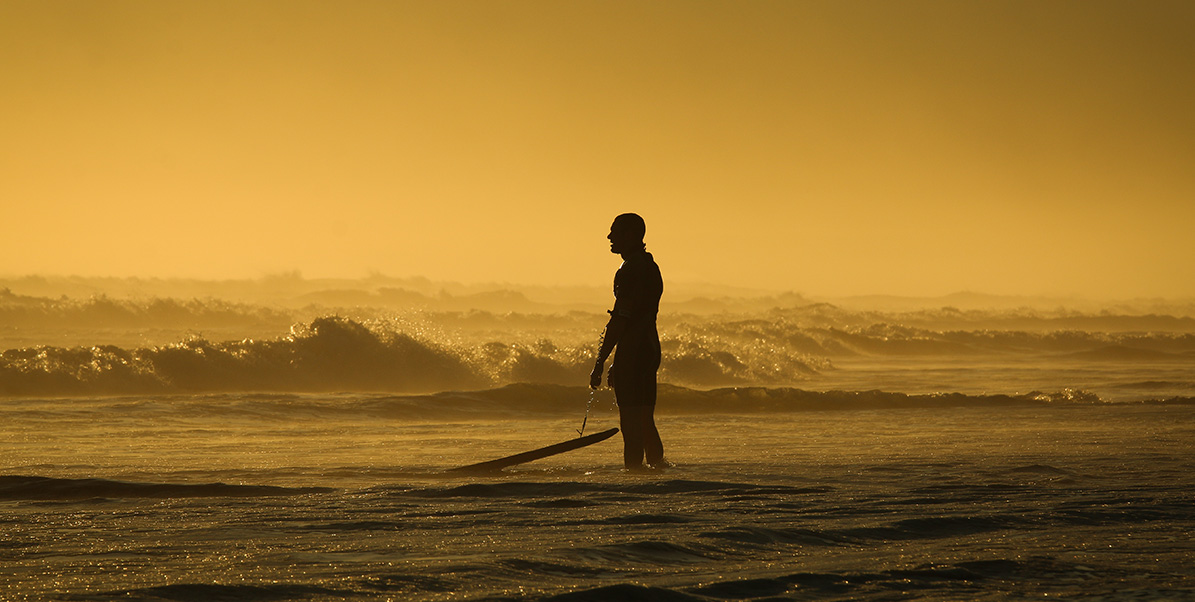
6. Bigger isn’t always better
I used to want to get all the “big waves”(no higher than a stack of 3 Jenga towers, 15 upright Toblerone bars and a medium-sized koala playing the cello), it didn’t matter whether they were complete closeouts. I just liked the idea of big waves and saw them as the ultimate prize. My perspective changed when a great Argentinian friend told me “bigger isn’t better” and then proceeded to ride a beautiful medium-sized wave with perfect carving and a look of pure joy on his face.
7. Good things take time
This one goes hand in hand with patience. When I first started doing this I would lose my cool very quickly. I thought you could catch waves every 4 minutes as if I was waiting for the tube in London, I can’t seem to think of any other reason why there’s no surfing in London. If you want to take the ride of your life you’ll have to wait patiently, I’ve found this applies to most things in life.
8. Don’t always take the shortcuts
As tempting as it is to go straight back against the waves as opposed to going ALL THE WAY TO THE CHANNEL. Chances are that it will take more time and effort to go straight back to the lineup than going round through the channel, even if it looks much closer. Sometimes it’s good to take shortcuts, but you should do so wisely.
9. First observe, then act
When you go out to a break it’s always necessary to watch the ocean, check the tide, analyze the waves and the conditions out there. A dodgy looking Australian taught me this over a pint in Sumbawa, he said “always read the ocean, or this dangerous channel with suck you up and you’ll end up somewhere in the Philippines” he didn’t look very trustworthy, but I can assure you I took his word. It’s always good to know your surroundings and to analyze a situation before jumping right into it. I sliced a mans head in the water because he didn’t see me coming straight at him with a massive Bob Marley themed surfboard, we were both pretty lucky to come out of that one with those “minor injuries”.
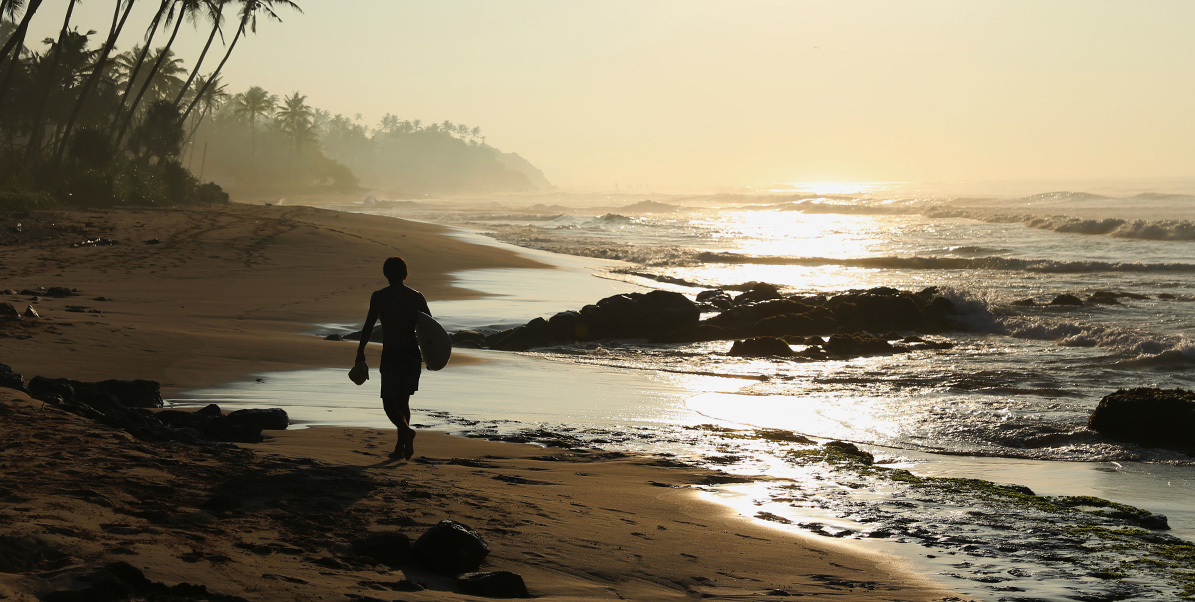
10. Nature rules
I mean this in every sense of the word. When you surf you have to be in sync with nature, there’s no way of going against it. You’ll need to rise early, wait for the right tide, check wind conditions and make sure there’s enough light to surf. When you have this level of contact with nature, you become part of it. Nature doesn’t care about routines or schedules, it will follow its course whether you like it or not, it’s up to you to catch the ride.
11. Not all efforts will be rewarded
It’s sad but true, sometimes you pedal till you have no steam left and you still can’t catch that wave. There’s nothing left to do but to catch your breath and get right back out there before the next set and grab another wave. You’ll get bruised and battered and no one will be there to pick you up, it’s completely up to you to get up on your feet and keep on fighting.
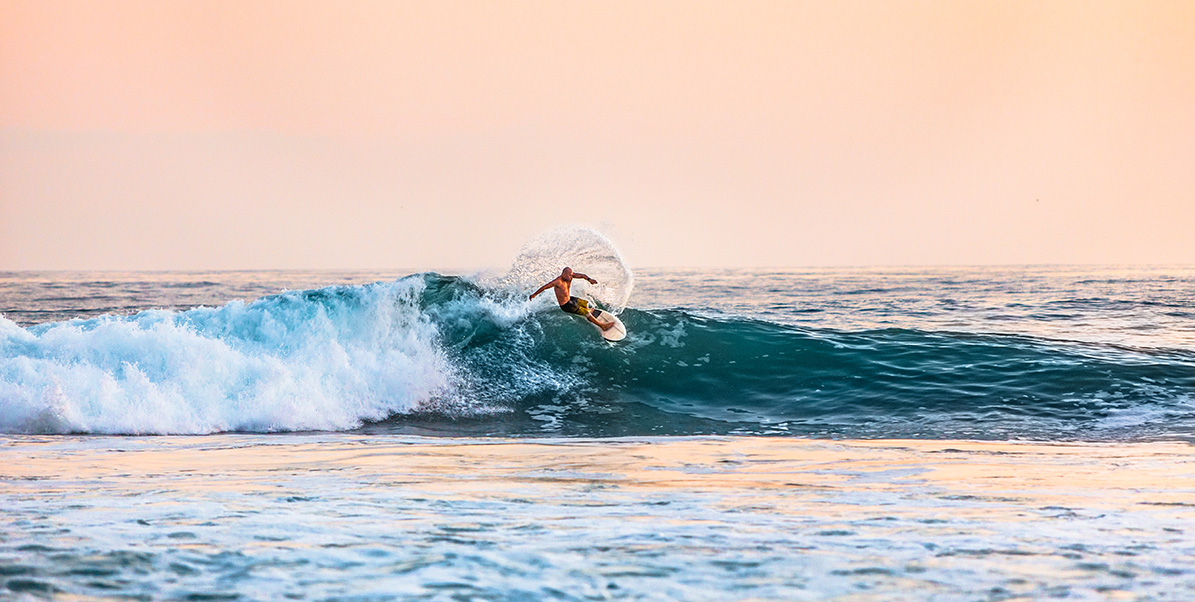
12. Stop worrying, start acting
The only way to keep on getting better is by throwing yourself out there. This is a great life lesson that applies to everything, I’ve taken it very seriously in my life and it has helped me achieve things that I previously thought were impossible. It’s worth giving things a shot and the majority of times worrying won’t prevent bad things from happening.
13. Don’t panic!
I know it’s easier said than done. But every time I’ve panicked and acted frantically in the water, I’ve ended up with a new injury, a broken board or slicing someone with my fins (4 stitches on the head of a very confused German to be precise). I sliced my back and broke my rib because I panicked and thought I couldn’t make it over the wave. The worst thing about it is that my housemate then had to wash my back in the shower for over a week (I have to admit I got pretty comfortable with it after day 2). If you’re in the water or changing your first nappy, it’s important to remember: you need to keep cool.
14. Teach others and others will teach you
The feeling of teaching something new is incredible. To be honest, that’s one of the main reasons I created Start Loaded: to transmit the things I know about being a digital nomad and teach something new. It feels great to do an extra effort and give someone an extra push, you’ll also learn from this and analyse how you do things yourself. I believe that what goes around comes around, surfing attracts an exquisite community of like-minded people that help each other out. I’ve met great surfers in and out of the water that has gone out of their way to help me improve, I’m eternally grateful to them.
15. Learn to back out
This one is crucial to learn, it could save you from becoming an exotic new coral formation stuck to the reef. Sometimes you pedal so hard and put so much effort into that perfect wave that it seems ridiculous to stop when you see someone dropping right in front of you. But trust me, unless you want to trade a precious vertebra for a worn-out exp fin, you might want to reconsider taking that wave.
16. Be prepared for everything
Once you’re in the surfing game for long enough, you realize that what seemed ridiculous to take on a surfing trip at the start, might be the crucial ingredient needed to help you go the extra mile. My friends laugh at me because I usually have my signature chocolate bread brewing in my backpack, but more often than not they will ask me for a bite of the precious stuff after a session. Anything could happen out there, you might be bitten by a dolphin or struck by lightning, you never know, you need to be prepared.
17. Face your fears
I’ve seen breaks that break my desire to get in the water. But then I loosen up and drop into waves that make my guts turn faster than a barreling wave. This is the only way to move forward, you need to clench your teeth and give it your best shot. If you don’t risk you don’t gain.
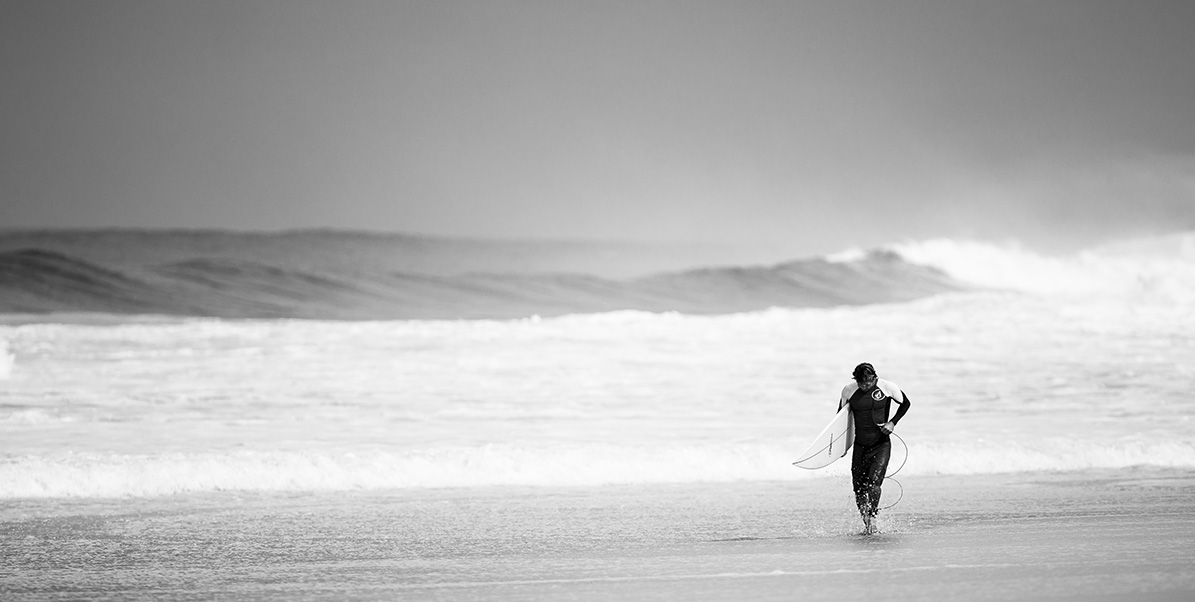
18. Repetition makes perfect
Do it over and over again till you automate it. I used to pop up looking like I was praying to Poseidon. I think was asking him to produce a smooth wave that wouldn’t threaten to snap me in half. I then decided to practice popping up on my feet instead of my knees, it slowly became an automated movement that I don’t need to think about anymore.
19. Don’t lose hope
I’ve probably spent more time coughing and getting back on my board after falling than riding. But it’s the only way to get better. When you feel you’re not made for this you just need to remind yourself of the great rides you’ve had and hope that someday you’ll be riding as smoothly as a hippopotamus on rollerblades.
20. Know your rights
It’s always good to know where you stand. It’s hard to do so when you’re environment changes all the time and it’s fair to admit that different places have very different rules. I sometimes don’t even know what side of the road to drive on when I’m in a country where the roads look more like a battle scene out of Lord of the rings. But if you know the general rules of the game, you can be more secure, you can hold your position and can win an argument, especially when you know it was your wave.
21. Locals know best
Listen to the people of the area, you can’t take your copy of the lonely planet into the waves or only rely on the rating on magic seaweed for reference. Asking locals has allowed me to surf hidden gems, helped me avoid injuries and pushed me out of my comfort zone. It’s also made me lose money to scammers claiming to know the local spots, but if you ask with caution you can get very far.

22. See opportunities where no one else does
As far as I’m concerned, sheep don’t surf. But sometimes it feels like it, we all pedal forward if someone else does and we all move to the left and right looking like a battered synchronized swimming crew. Sometimes it’s good to just go your own way and be different. It pays off, you can get the biggest sets all for yourself if you plan it right. Think outside the box.
23. Great buildings have well-grounded foundations
Learn properly, upgrade boards slowly, take your time and get the basics right. I failed at doing this and thought I was tough cause I started on a 6,6″ now I realize my mistake, I didn’t get the basics right. I still struggle a lot with my stance and popping up has been a mission to get right. If I would’ve been patient I would have probably advanced quicker in this game.
24. Great things cannot be explained
There’s no way to explain what going through a barrel at 30 miles an hour feels like, not even Bob Dylan could write a song that could transmit that emotion. The only way to feel the thrill of doing something, whatever it is, is to do it yourself. Then you’ll understand why I spend 3 hours a day in the water.
I’ve been surfing for a few months now and I’m hooked, but before you call me a beach bum, which I probably am, I’d like to say that this lifestyle has been possible due to me being a digital nomad.
That’s why I created this eBook that outlines 10 steps to quit your job and become a digital nomad.
